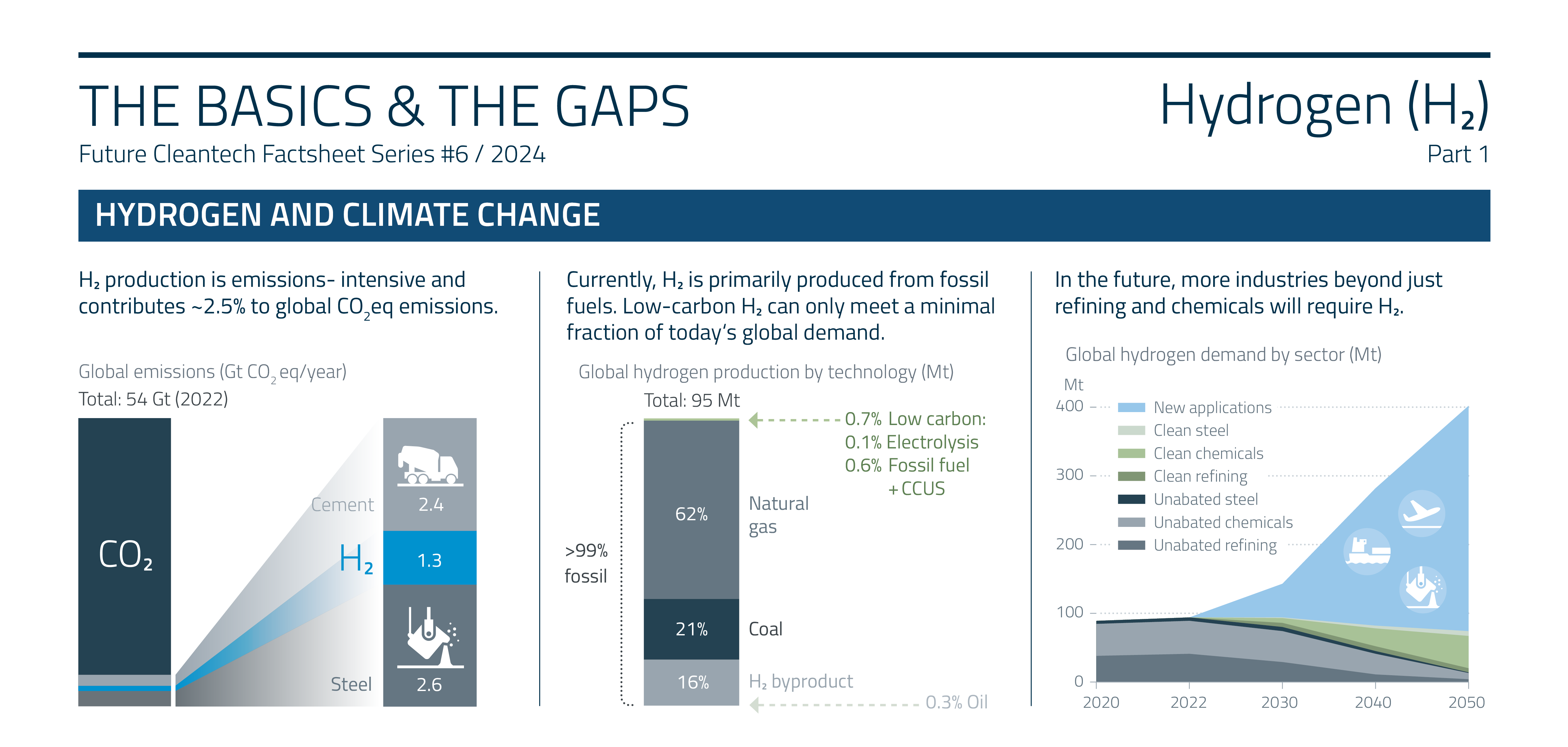All you need to know about hydrogen, its production, challenges, and prioritization: We are pleased to release a new episode of The Basics & The Gaps.
Hydrogen production is highly emissions-intensive and contributes 2.2% to global CO₂eq emissions annually. Producing hydrogen is a carbon intensive process that is still heavily reliant on fossil fuels, with over 55 Mt of emissions coming from natural gas via steam methane reforming.
Green hydrogen will play a key role in decarbonizing hydrogen production. However, producing the amount of green hydrogen required to decarbonize current uses is energy intensive and would necessitate a steep increase in renewable electricity generation, placing further strain on the need to ramp up renewable electricity generation capacity.
Hydrogen must therefore be prioritized for those sectors that need it the most and have no other alternative decarbonization solution:
✅ Several high-emitting sectors of the economy, such as ammonia production for the use in the chemical and fertilizer industries, refining processes, and steel production, processes, that modern society relies on heavily are or will be dependent on hydrogen. Considering that clean hydrogen will remain scarce and expensive for decades to come, these sectors should have priority access to clean hydrogen before introducing it into additional sectors.
✅ Hard-to-abate sectors, such as long-distance shipping and aviation, where direct electrification is not a feasible decarbonization solution, will require hydrogen in some capacity to decarbonize. Aviation and shipping will mainly utilize hydrogen as a feedstock to produce alternative fuels such as e-methanol, green ammonia, and synthetic jet fuels. Hydrogen is also needed in refining processes to produce biofuels.
✅ Sectors such as road transport, buildings, and power generation, where direct electrification is feasible, should avoid hydrogen, as it comes with significant energy losses due to extra conversion steps. For example, an electric vehicle is ~3.3x more efficient than a hydrogen vehicle. Using hydrogen for those sectors is a waste of energy and poor allocation of public funding.
To learn more and to see the Factsheet, click here!

